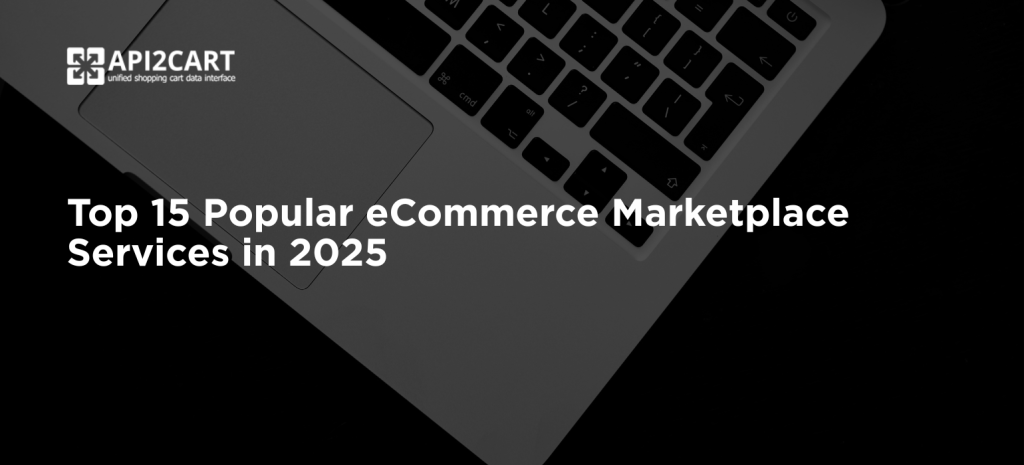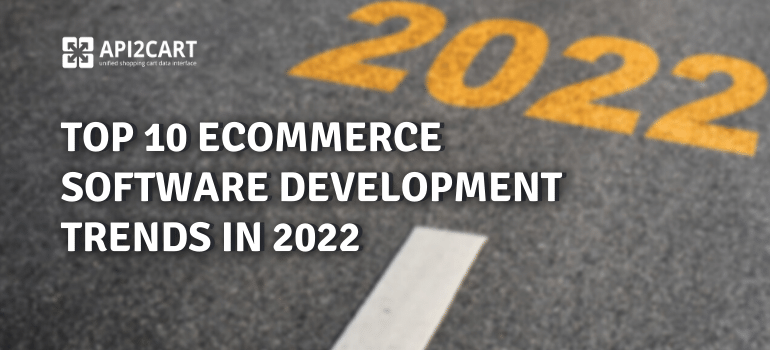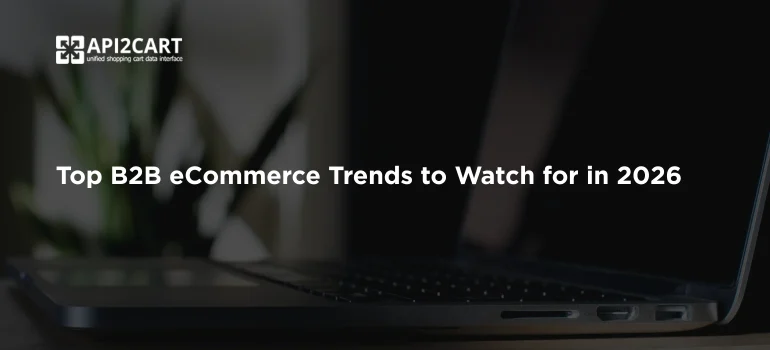
Over the last few years, B2B eCommerce has evolved from a simple way for businesses to purchase products online into a dynamic and essential part of the global economy. With the increased number of companies adopting digital platforms in their transactions, it is important to know the current trends in B2B eCommerce to be able to remain competitive. Generally, the B2B environment is changing drastically, with the emergence of customized customer experiences, the adoption of modern technologies such as AI and automation, among others.
This article will discuss the main trends that will define B2B eCommerce in 2026 and beyond, providing ideas on how companies can use them to streamline their businesses, develop better relationships with customers, and boost their growth.
Development and Growth of B2B eCommerce
In the last few years, B2B eCommerce has grown exponentially and this is set to increase in the next few years. Indeed, it is estimated that the world B2B eCommerce sales will reach 20.9 trillion dollars by the year 2027, comprising a considerable part of the global trade. This accelerated growth is indicative of a significant change. Companies are increasingly carrying out trade through digital platforms. The majority of businesses now prefer using these platforms to transact, simplify operations, and engage with suppliers and customers.
Main Factors of Growth of B2B eCommerce
There are a number of reasons that have led to the fast growth of B2B eCommerce. These factors are reshaping the industry and pushing businesses to embrace digital solutions:
1. Digitalization
The growing usage of digital tools and platforms in every sphere of business allowed B2B companies to improve their processes. Also, businesses are leaving behind the old, manual approach to buying and selling. They are now leveraging eCommerce platforms. This helps make transactions more efficient and manage supplies and customers.
2. Changes in Consumer Behavior
B2B purchasers, similarly to B2C clients, currently anticipate a smooth and individualized shopping experience. They require convenient access to product information, fair prices and a convenient purchasing process. Younger, tech-savvy professionals are taking over purchasing decisions. Also, businesses are adapting to meet these new expectations. They are offering digital self-service options and improved user experiences.
3. Pandemic
The COVID-19 pandemic contributed to the rapid development of B2B eCommerce greatly. Traditional in-person interactions were constrained by lockdowns and social distancing. So, companies were forced to rapidly switch to online platforms. This allowed them to continue their operations. This transition also emphasized the importance of digital solutions in B2B business. So, most of the businesses that were not eager to use eCommerce before had to use it as a necessity. This led to digital transactions becoming a standard and most businesses find it necessary to survive.
4. Technological Advancements
Innovations in AI, machine learning, and automation have allowed B2B companies to enhance customer experiences, streamline processes, and optimize supply chains. Also, these types of technology assist businesses in giving customized suggestions. They also help with forethought analytics and better inventory management. All of these factors advance eCommerce growth in the B2B market.
5. Globalization
B2B eCommerce has also been aided with the growth of international trade. Companies are no longer limited to local markets and the eCommerce platforms offer the possibility of companies accessing international suppliers and customers. Businesses are now able to target new markets more efficiently than ever before, as cross-border transactions can be easily managed.
Thus, all these factors have led to a strong B2B eCommerce environment. It is expanding rapidly as more businesses adopt digital outlets. This helps fuel their expansion, optimize operations, and address the changing demands of contemporary customers. With the market constantly changing, companies will have to be on top of the trends and new developments to retain competitive advantage.
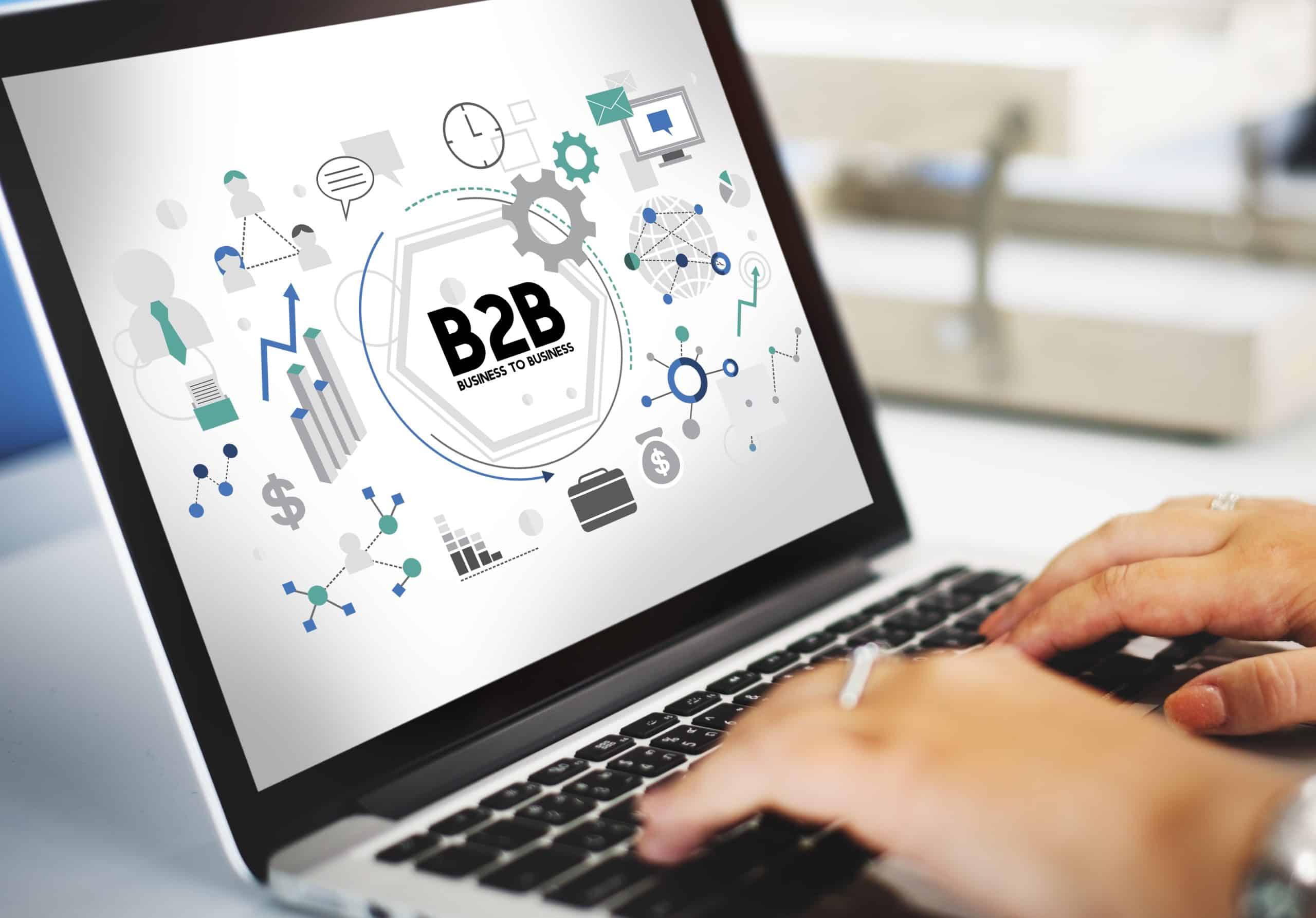
Key Trends in B2B eCommerce for 2026
Looking to 2026 and beyond, there are some main trends that will be defining the future of B2B eCommerce. These trends are driven by improvements in technology. They are also a result of the shift in consumer expectations. Additionally, businesses must stay competitive in a world that is becoming digital. Let us take a glance at the top trends that we should look forward to in the B2B eCommerce field in the next few years:
1. Personalization B2B Experiences
Similar to B2C eCommerce, B2B buyers are also looking forward to a highly personalized shopping experience. In 2026 and beyond, more B2B companies will use data analytics. They will also use AI and machine learning. These technologies will help create tailored product recommendations, dynamic pricing models, and personalized marketing messages. The shift will enable businesses to develop closer ties with their customers and offer more pertinent solutions.
Self-service portals will be personalized. Dashboards will be tailored to specific needs. Targeted promotions will also become common. Businesses will use these to satisfy the individual needs of clients.
2. Mobile-First B2B
The shift towards mobile commerce will also increase in B2B. As more decision-makers are constantly on the move, mobile optimization will be a must-have among companies looking to remain competitive. In 2026, mobile platforms will play a larger role in the B2B experience. Businesses will be able to manage orders and shipments (create, add, and update). They will also access real-time analytics from anywhere.
It can be expected that mobile applications will be able to provide a smooth connection with eCommerce solutions, where B2B buyers and sellers will have a more comfortable and convenient experience.
3. Artificial Intelligence and Automation
Artificial intelligence and automation are changing the world of B2B eCommerce, making operations more streamlined, customer service more efficient, and operations more efficient. In 2026, the application of AI will be expanded in the customer service chatbots, predictive analytics, and inventory management.
Automation technologies and tools will help companies process routine tasks, including order processing, invoicing, and others more precisely and faster, and teams will be able to concentrate on more strategic tasks.
4. Integration Across eCommerce Platforms
In 2026, integration with eCommerce platforms will be even more significant. As the number of online stores continues to rise, the demand for eCommerce SaaS solutions that optimize various business functions also grows. For such solutions integration with eCommerce platforms is a top priority. So, the more platforms they support, the more potential clients they may get.
eCommerce B2B companies will have to integrate with a range of platforms and marketplaces to stay competitive.
5. Omnichannel Experience
B2B companies are discovering that an omnichannel experience is more than online sales. In 2026, there will be more companies that offer an integrated solution, such as online, mobile, face-to-face, and even social media. So, this will enable the B2B buyers to engage in businesses in various points, making the experience more convenient and integrated.
The sellers will be keen on providing customers with the ease of transition between the digital and physical touchpoints to improve the purchase experience.
6. B2B Marketplaces and eCommerce Platforms
B2B marketplaces and eCommerce platforms are expected to grow significantly in 2026 and companies will continue to resort to these platforms as a source of supplier, transactions, and new products. Basically, eCommerce platforms and marketplaces, including Amazon, Shopify, WooCommerce, BigCommerce, Etsy, OpenCart, PrestaShop, and others, have set the stage for a new way of conducting B2B sales, and more companies will adopt these platforms to reach more customers.
These eCommerce stores and marketplace will provide various features, including enhanced search functionality, trust-building measures, and transparent pricing, that will keep them a viable choice to conduct B2B sales.
Faster and Smarter Payments
B2B payment will also be advanced as companies embrace quicker, safer and more flexible payment systems. In 2026, the popularization of digital wallets, cryptocurrency, and instant payment systems are likely to be observed.
These new payment methods will simplify payments, lessen the friction of buyers, and increase cash flow management of businesses.
Thus, in 2026 and beyond, B2B eCommerce will still be influenced by technological innovations, the changing demands of customers, and increasing efficiency and sustainability. By monitoring these major trends, companies will be in a better position of succeeding in the increasingly competitive and digital market.
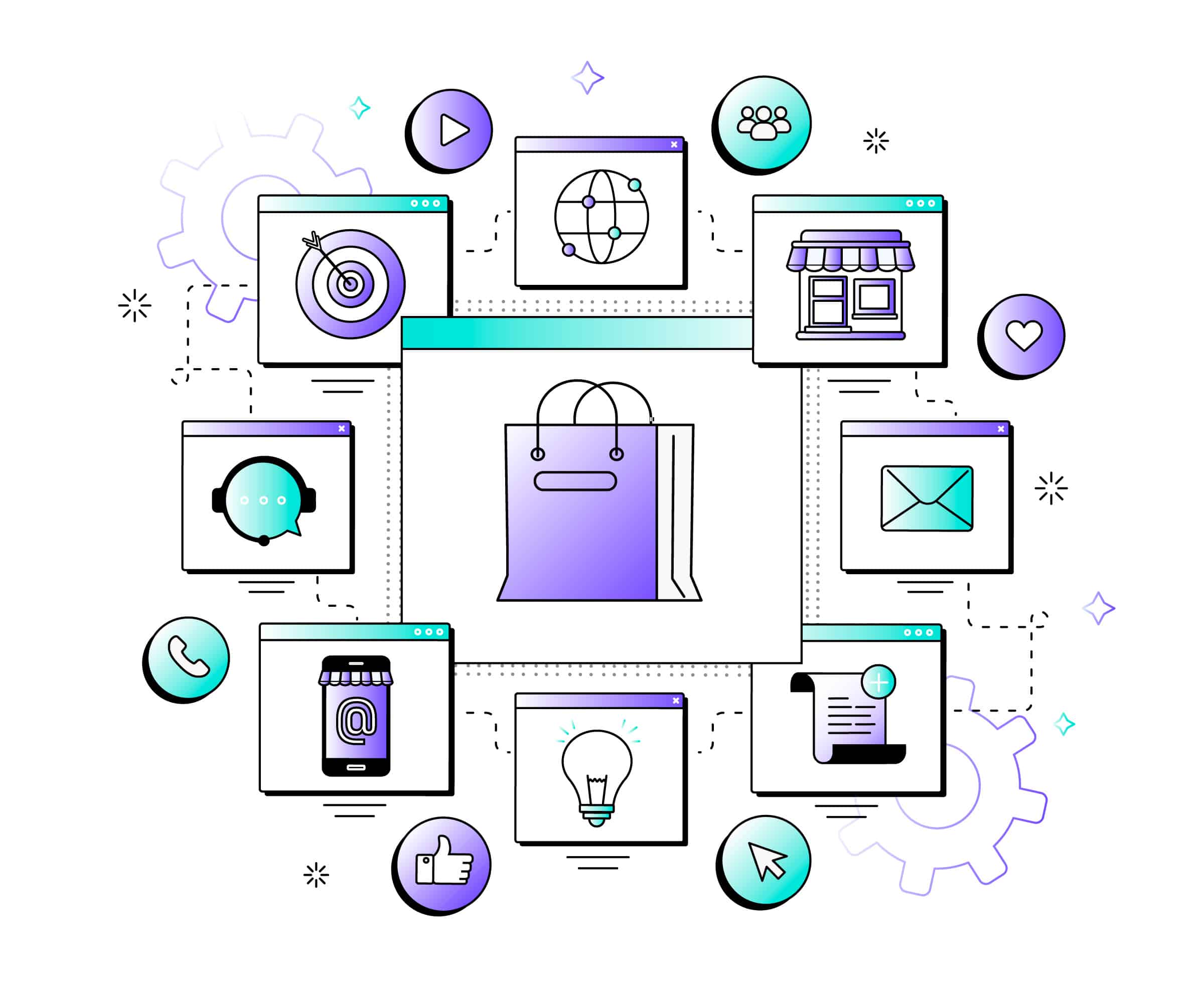
How API2Cart is Revolutionizing B2B eCommerce Integrations
If you provide an eCommerce B2B solution for online store owners, then having a unified, reliable and effective integration solution to manage and connect to multiple shopping platforms and marketplace is a must. This is where API2Cart comes in.
API2Cart is a B2B integration platform that provides eCommerce software vendors with the ability to integrate their eCommerce software with multiple eCommerce platforms via one API. This service simplifies the eCommerce integration process, enabling software to access and manage data from 60+ eCommerce platforms and marketplaces, including Shopify, Magento, WooCommerce, BigCommerce, PrestaShop, OpenCart, and others, simultaneously, using only one integration without developing complex and custom solutions.

Thus, if you need to manage customer data, orders, products, or inventory, API2Cart provides a seamless integration that centralizes all your processes in one place that saves your time and makes your work less complex. Using it, you can synchronize product listing, customer information and order data across multiple platforms in real-time in a simple way.
Check out how you can easily integrate your eCommerce software with multiple eCommerce platforms, using a single API. Register at the API2Cart and get a free 14-day trial right now!
FAQs
It allows you to access, manage and sync valuable store data, such as products, orders, customers, inventory, shipments, and more, across multiple platforms, and thus you save time and make integration less complicated.
